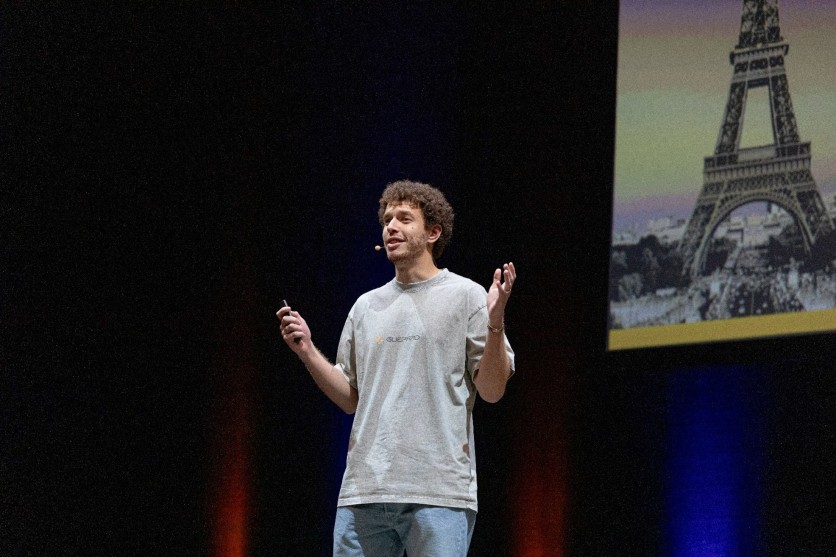
When Koutheir Cherni talks about enterprise data, he is blunt about the challenge. "The current data provision architecture cannot support the rise of AI agents," the Guepard founder and CEO said this week as his San Francisco startup announced a $2.1 million pre-seed round led by Schematic Ventures with participation from UC Berkeley Skydeck and Oprtrs Club. The promise: Git-style version control for terabyte-scale data, delivered to enterprises that have never truly had it.
It's an audacious pitch in a market where giants like Snowflake and Databricks dominate, and where open-source projects like LakeFS are exploring similar ideas. Guepard's hook is speed and control—turning a 10-hour data copy into a five-second operation, while guarding against the risks AI introduces to production systems.
Why the Old Way Breaks
For decades, the standard practice was to copy production data into "static environments" for development, QA, or testing. Everyone knew it was inefficient, but enterprises accepted the cost.
Cherni spelled it out: "If you have one terabyte of data, it will take you +10 hours to copy to this environment and then +10 hours to restore." And those copies quickly drift out of date, meaning engineers waste more time trying to maintain them.
Guepard skips that cycle. Its engine plugs directly into data sources, fetches data in real time, masks sensitive information, and spins up instant clones—live in under 30 seconds. The jump from weeks of provisioning to seconds isn't just a workflow improvement. It changes how fast companies can roll out features, test new systems, or let AI touch their infrastructure.
The AI Angle
AI agents are the looming stress test. They're already embedded in tasks from call centers to financial modeling, and unlike human operators, they move at machine speed.
"Agents are at least 100x faster than humans," Cherni said. "If your agent hallucinates and deletes the database, what can you do? You cannot roll it back to a previous version."
That isn't just theory. Developers frequently report incidents of AI-assisted tools wiping out valuable data. Guepard is positioning itself as a safeguard: every action versioned, every mistake reversible, much like Git became the default safety net for software developers.
The Fortune 500 Test
Scale shows the appeal. One Fortune 500 prospect had 170 terabytes of data, 460 copies scattered across 1,600 engineers. Guepard calculated it could slash servers by 60 percent, free up +40 hours a week for each team, and cut infrastructure costs in half.
Can we add Supply Chain, Logistics, insurers, retailers—anyone with sprawling datasets could find those numbers compelling. But CIOs are still cautious. Betting mission-critical infrastructure on a startup feels risky, and entrenched vendors won't walk away from their own billions in revenue without a fight.
Cherni counters with speed. "Think of it like our engine is a Lego. We build the bricks customers need and install it into their infrastructure without requiring adaptation." Proof-of-concepts, he claims, can be running inside a week, compared to the months incumbents typically demand.
Not Another "AI Layer"
In a year when nearly every startup is pitching AI features, Guepard is taking the opposite tack.
"We use a lot of AI internally, but our product has no AI," Cherni said. "We sit at the lowest level of engineering—at the server and system layer. That makes us a foundation for all of these application layers to sit on top."
By branding itself as infrastructure plumbing rather than another AI add-on, Guepard may stand out. It also taps into what CIOs are actually budgeting for. Analysts such as Gartner have identified infrastructure modernization as a top enterprise priority in 2025, with AI adoption hinging on the ability to keep core systems stable.
Global Roots, Valley Acceleration
Cherni is candid about why the company chose San Francisco over its European and African roots. "The U.S. is way ahead in terms of technology adoption," he said. "There's a new wave of agent adoption here that we're not seeing in Europe or Africa. Companies that resist AI adoption will be left behind by competitors that are 10x or 100x more productive."
His team isn't inexperienced. Co-founders Hani Chalouati and Ghassen Menaouar, who previously built and scaled their company in France to $25 million in ARR, now balance the 25-year-old CEO's vision with hard-won operating experience. That mix—youthful ambition paired with seasoned pragmatism—could matter as much as the technology itself.
The Human Side
Cherni doesn't hide the psychological grind of building foundational infrastructure. "Imposter syndrome never actually disappears," he said. "You just get better at dancing with it." He credits his older co-founders with giving him the guardrails to move quickly without veering off course.
It's a rare admission in a market thick with hype. But it fits the company's positioning: not another shiny layer of "intelligence," but the quiet foundation that makes intelligence survivable in enterprise systems.
Or, as Cherni puts it: "People do business with people, but AI agents do business with data."
If that vision holds, Guepard won't just be a footnote in the AI wave. It could become the Git of enterprise data.
ⓒ 2026 TECHTIMES.com All rights reserved. Do not reproduce without permission.




